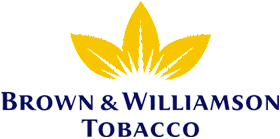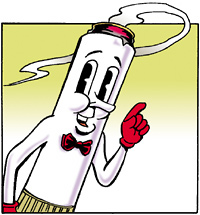Related Research Articles

The tobacco industry comprises those persons and companies who are engaged in the growth, preparation for sale, shipment, advertisement, and distribution of tobacco and tobacco-related products. It is a global industry; tobacco can grow in any warm, moist environment, which means it can be farmed on all continents except Antarctica.

The Insider is a 1999 American biographical drama film directed by Michael Mann, from a screenplay adapted by Eric Roth and Mann based on Marie Brenner's 1996 Vanity Fair article "The Man Who Knew Too Much". The film stars Al Pacino, Russell Crowe, Christopher Plummer, Bruce McGill, Diane Venora, and Michael Gambon.

The R. J. Reynolds Tobacco Company (RJR) is an American tobacco manufacturing company based in Winston-Salem, North Carolina, and headquartered at the RJR Plaza Building. Founded by R. J. Reynolds in 1875, it is the largest tobacco company in the United States. The company is a wholly owned subsidiary of Reynolds American, after merging with the U.S. operations of British American Tobacco in 2004.

British American Tobacco p.l.c. (BAT) is a British multinational company that manufactures and sells cigarettes, tobacco and other nicotine products including electronic cigarettes. The company, established in 1902, is headquartered in London, England. As of 2021, it is the largest tobacco company in the world based on net sales and the third largest seller of vapes in the UK.

Brown & Williamson Tobacco Corporation was a U.S. tobacco company and a subsidiary of multinational British American Tobacco that produced several popular cigarette brands. It became infamous as the focus of investigations for chemically enhancing the addictiveness of cigarettes. Its former vice-president of research and development, Jeffrey Wigand, was the whistleblower in an investigation conducted by CBS news program 60 Minutes, an event that was dramatized in the film The Insider (1999). Wigand claimed that B&W had introduced chemicals such as ammonia into cigarettes to increase nicotine delivery and increase addictiveness.

Jeffrey Stephen Wigand is an American biochemist and whistleblower.

Kool is an American brand of menthol cigarette, currently owned and manufactured by ITG Brands LLC, a subsidiary of Imperial Tobacco Company. Kool cigarettes sold outside of the United States are manufactured by British American Tobacco.

Nicotine marketing is the marketing of nicotine-containing products or use. Traditionally, the tobacco industry markets cigarette smoking, but it is increasingly marketing other products, such as electronic cigarettes and heated tobacco products. Products are marketed through social media, stealth marketing, mass media, and sponsorship. Expenditures on nicotine marketing are in the tens of billions a year; in the US alone, spending was over US$1 million per hour in 2016; in 2003, per-capita marketing spending was $290 per adult smoker, or $45 per inhabitant. Nicotine marketing is increasingly regulated; some forms of nicotine advertising are banned in many countries. The World Health Organization recommends a complete tobacco advertising ban.

David Aaron Kessler is an American pediatrician, attorney, author, and administrator serving as Chief Science Officer of the White House COVID-19 Response Team since 2021. Kessler was the commissioner of the Food and Drug Administration (FDA) from November 8, 1990, to February 28, 1997. He co-chaired the Biden-Harris transition’s COVID-19 Advisory Board from November 2020 to January 2021 and was the head of Operation Warp Speed, the U.S. government program to accelerate the development of COVID-19 vaccines and other treatments, from January to February 2021.
The Tobacco Master Settlement Agreement (MSA) was entered on November 23, 1998, originally between the four largest United States tobacco companies and the attorneys general of 46 states. The states settled their Medicaid lawsuits against the tobacco industry for recovery of their tobacco-related health-care costs. In exchange, the companies agreed to curtail or cease certain tobacco marketing practices, as well as to pay, in perpetuity, various annual payments to the states to compensate them for some of the medical costs of caring for persons with smoking-related illnesses. The money also funds a new anti-smoking advocacy group, called the Truth Initiative, that is responsible for such campaigns as Truth and maintains a public archive of documents resulting from the cases.

Lorillard Tobacco Company was an American tobacco company that marketed cigarettes under the brand names Newport, Maverick, Old Gold, Kent, True, Satin, and Max. The company had two operating segments: cigarettes and electronic cigarettes.

Mr. Butts is a character in Garry Trudeau's comic strip Doonesbury. When Mike Doonesbury was asked to create an ad campaign aimed at teenage smokers, he suffered a morality crisis, and the hallucinatory Mr. Butts was the result. An eight-foot-tall cigarette with a goofy smile, Mr. Butts is the anthropomorphic personification of the tobacco industry. Stylistically he is reminiscent of Zap Comix, as pointed out by J. J. when first described to her by Mike.

Michael Cameron Moore is an American attorney and politician. A member of the Democratic Party, he served as the Attorney General of Mississippi from 1988 to 2004.

Richard F. "Dickie" Scruggs is an American former naval aviator and disbarred trial lawyer. He is the brother-in-law of former U.S. Senate Majority Leader Trent Lott. Scruggs first came to the public eye after successfully suing the asbestos industry on behalf of ill shipyard workers. He later represented the state of Mississippi in the tobacco litigation of the 1990s. He also represented hundreds of homeowners in lawsuits against insurance companies following Hurricane Katrina, and a national class action of patients against HMOs in the early 2000s.
Kerri Rigsby and Cori Rigsby (Moran) are the American sisters who worked for eight years at E.A. Renfroe Company and were managers overseeing catastrophe claims adjusters. Kerri and Cori Rigsby are also the whistleblowers who proved to a Mississippi jury that State Farm committed fraud against the U.S. government. The sisters claim State Farm ignored or minimized wind damage to avoid payments relating to Hurricane Katrina and instead attributed damage to flooding so that the National Flood Insurance Program would cover the claims. The jury verdict was upheld by the U.S. Court of Appeals for the Fifth Circuit, was then affirmed 8-0 by the United States Supreme Court. The Rigsbys were managers who worked in Gulfport, Mississippi for a subcontractor hired by State Farm to adjust wind and flood claims after Hurricane Katrina. They were the first to uncover a fraudulent scheme by State Farm to improperly categorize wind damage as flood damage. This mischaracterization was very important because State Farm had to pay for wind damage out of its own pocket under State Farm homeowner policies, while flood damage was paid by the federal government under FEMA's flood policies. Over the course of several months, the sisters amassed thousands of pages of documents related to State Farm's activities. The Rigsbys' landmark win was historic because they were the first to prove that an insurance company defrauded the government in FEMA's National Flood Insurance Program despite testimony by FEMA’s Executive Director that, after investigating the allegations, he personally didn’t believe that there was any fraud by State Farm, and he confirmed that FEMA had not asked State Farm to repay any money to the National Flood Insurance Program. However, according to court documents, the sisters took the documents without authorization. Their actions in regard to these documents is the subject of ongoing legal action. Eventually, their story went public when ABC's 20/20 show aired it in August 2006. In 2008, Judge Senter of the U.S. District Court of the Southern District of Mississippi found that the sisters and their attorneys had acted unethically when the Scruggs Katrina Group paid the sisters $150,000 per year each to testify, and barred them from testifying or using any of the documents that were taken. Scruggs was later forced to withdraw as their attorney because he improperly paid them for downloading and giving him the State Farm claims files and other documents to use in his lawsuits against State Farm. Scruggs also was later disbarred after pleading guilty to conspiracy to bribe a state circuit court judge in 2008 and separately, to improperly influence another state court circuit judge. He was sentenced to serve five years and seven years, to run concurrently, on the two guilty pleas.

Cipollone v. Liggett Group, Inc., 505 U.S. 504 (1992), was a United States Supreme Court case. In a split opinion, the Court held that the Surgeon General's warning did not preclude lawsuits by smokers against tobacco companies on the basis of several claims. The case examined whether tobacco companies could be liable for not warning the consumer "adequately" of the dangers of cigarettes as well as ultimately held the stance that smoking was in fact a free choice. The ruling also questioned the Cigarette Labeling and Advertising Act of 1965 to determine whether the warning labels on the cigarette products by law had to be less or more alarming than the warning issued.

Tobacco politics refers to the politics surrounding the use and distribution of tobacco, likewise with regulations.

The Cigarette Papers is a 1996 non-fiction book by Stanton A. Glantz (editor), John Slade (editor), Lisa A. Bero (editor), Peter Hanauer (editor), Deborah E. Barnes (editor), and C. Everett Koop (Foreword), analyzing leaked documents that for the first time proved "tobacco companies had long known the grave dangers of smoking, and did nothing about it." In May 1994, 4,000 pages of internal tobacco industry documents were sent to the office of Professor Stanton Glantz, a well-known anti-smoking activist, at the University of California, San Francisco. The source of these "cigarette papers" was identified only as Mr. Butts and was only later identified as Merrell Williams, Jr. The documents provide an inside look at the internal activities of American tobacco company, Brown & Williamson, over more than 30 years.
Warren Braren was a consumer protection advocate in the United States.

The tobacco industry playbook, tobacco strategy or simply disinformation playbook describes a strategy devised by the tobacco industry in the 1950s to protect revenues in the face of mounting evidence of links between tobacco smoke and serious illnesses, primarily cancer. Much of the playbook is known from industry documents made public by whistleblowers or as a result of the Tobacco Master Settlement Agreement. These documents are now curated by the UCSF Truth Tobacco Industry Documents project and are a primary source for much commentary on both the tobacco playbook and its similarities to the tactics used by other industries, notably the fossil fuel industry. It is possible that the playbook may even have originated with the oil industry.
References
- ↑ Martin, Douglas (December 4, 2013). "Merrell Williams jnr obituary: Whistleblower who exposed the three big lies of America's tobacco giants". The Sydney Morning Herald. New York Times. Retrieved August 20, 2021.
- 1 2 3 4 Chawkins, Steve (November 28, 2013). "Merrell Williams Jr. dies at 72; former paralegal fought Big Tobacco". Los Angeles Times. Retrieved August 20, 2021.
- 1 2 3 4 Martin, Douglas (November 27, 2013). "Merrell Williams Jr., Paralegal Who Bared Big Tobacco, Dies at 72". The New York Times. p. B17. Retrieved August 20, 2021.
- 1 2 Hilts, Philip J. (August 8, 1994). "A Life of Hiding for a Tobacco Critic Bound to Silence". The New York Times. p. A11. Retrieved August 20, 2021.
- 1 2 3 4 1634–1699: McCusker, J. J. (1997). How Much Is That in Real Money? A Historical Price Index for Use as a Deflator of Money Values in the Economy of the United States: Addenda et Corrigenda (PDF). American Antiquarian Society. 1700–1799: McCusker, J. J. (1992). How Much Is That in Real Money? A Historical Price Index for Use as a Deflator of Money Values in the Economy of the United States (PDF). American Antiquarian Society. 1800–present: Federal Reserve Bank of Minneapolis. "Consumer Price Index (estimate) 1800–" . Retrieved February 29, 2024.
- 1 2 3 4 Barstow, David (September 30, 2005). "The Thief and the Third Wave". Tampa Bay Times. Retrieved August 20, 2021.
- 1 2 Levin, Myron (June 23, 1996). "Smoking Gun : The Unlikely Figure Who Rocked the U.S. Tobacco Industry". Los Angeles Times. Retrieved August 22, 2021.
- ↑ Hilts, Philip J. (November 12, 1994). "Court Eases Restraining Order in Tobacco Document Case". The New York Times. p. 9. Retrieved August 20, 2021.
- 1 2 3 "Interviews - Richard Scruggs | Inside The Tobacco Deal". Frontline. PBS. 1998. Retrieved August 20, 2021.
- 1 2 Lewis, Linda (December 4, 2013). "Whistleblower described as "tobacco industry's worst nightmare" dies | Whistleblowing Today". Whistleblowing Today. Retrieved August 20, 2021.
- ↑ Cummings, K M; Pollay, R W (March 2002). "Exposing Mr Butts' tricks of the trade". Tobacco Control. 11 (suppl 1): i1–i4. doi:10.1136/tc.11.suppl_1.i1. PMC 1766064 .
- ↑ Glantz, Stanton A.; Slade, John; Bero, Lisa A.; Hanauer, Peter; Barnes, Deborah E., eds. (1996). The cigarette papers. Berkeley: University of California Press. p. 560. ISBN 9780520213722.
- ↑ "Who's Afraid Of Dickie Scruggs?". Newsweek. December 5, 1999. Retrieved August 20, 2021.
- ↑ "Well-Known Tobacco Whistleblower, Merrell Williams Jr., Recently Dies". Barrett Law PLLC. February 14, 2014. Retrieved August 20, 2021.
- ↑ "Past Winners of The Joe A. Callaway Award for Civic Courage". Callaway Awards. Retrieved August 20, 2021.
- ↑ "Gleitsman Citizen Activist Award". Harvard Kennedy School Center for Public Leadership. Retrieved August 20, 2021. (listed as Merrill[ sic ] Williams)
- ↑ H.J.Res. 367(103rd Cong.)